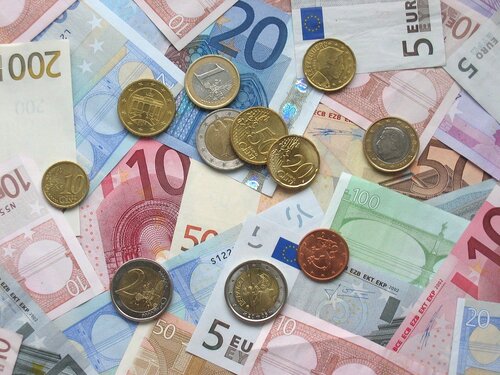Un déclin très progressif de l’argent liquide
Plusieurs acteurs du secteur fiduciaire ont exprimé leur soulagement à l’annonce des conclusions de l’étude de la BCE, qu’ils attendaient avec fébrilité, comme le transporteur de fonds Brinks ou encore la Monnaie de Paris, qui exerce pour l’État la mission de frappe de la monnaie courante.
En effet, si le déclin du cash est indéniable, ce moyen de paiement reste toutefois le plus populaire, et représente encore 73 % des transactions de détail de la zone euro, dans les points de vente ou entre particuliers, loin devant la carte bancaire qui ne représentait que 24 % des transactions en 2019, année sur laquelle se base l’étude de la BCE.
Toutefois, si le déclin est lent, il n’en est pas moins réel. Il y a trois ans, ce sont 79 % des transactions de détail qui étaient effectuées en espèces. De plus, les consignes sanitaires liées à la pandémie ont renforcé l’utilisation de la carte bancaire et des paiements sans contact, au détriment de l’argent liquide.
Des disparités selon les États membres de la zone euro
La BCE souligne par ailleurs d’importantes disparités entre les États membres. En France, le déclin du cash est plus important, la carte bancaire y étant depuis plusieurs années déjà particulièrement populaire.
- 6 transactions de détail sur 10 ont été réalisées en espèces en 2019, contre 7 sur 10 il y a 3 ans.
- Le montant des transactions réglées en cash en 2019 représente 25 % du montant total des transactions de détail, contre 28 % en 2016.
- Dans les magasins, alors que 68 % des transactions se faisaient en espèces en 2016, le chiffre est désormais de 59 %.
Par ailleurs, les Français se disent moins attachés à l’argent liquide que les autres membres de la zone euro : 9 % seulement déclarent favoriser le paiement en cash dans les magasins, contre une moyenne de 27 % pour les habitants de la zone euro.
Malte se place en tête des États membres de la zone euro avec 88 % des transactions de détail dans les magasins réalisées en espèces, suivi de Chypre et de l’Espagne avec 83 % chacun, contre seulement 35 % en Finlande et 34 % aux Pays-Bas.
